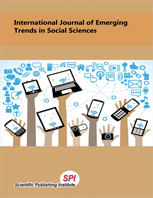An Analysis of Women Farmers in Rice Production in Donga Local Government Area of Taraba State
DOI:
https://doi.org/10.20448/2001.11.16.21Keywords:
Rice, farmers, Food security, Women participation, Credit facility.Abstract
The study focuses on Analysis of Women Farmers in Rice Production in Donga Local Government Area of Taraba State. A total of 120 Questionnaire were collected and subjected to descriptive statistical analysis. The study used purposeful sampling technique to choose two (2) wards out of the ten (10) political wards in Donga Local Government Area of Taraba State. The two (2) wards were Akate and Asibiti wards. Also, random sampling was used to distribute the questionnaires among the respondents in the two (2) wards selected. In each of the wards, twelve (12) households were randomly selected and five (5) questionnaires were distributed to each of the household. The Chi-Square(X2) test was used to ascertain the relationship between the factors affecting rice production by women rice farmers in Donga L.G.A of Taraba State. The study reveals that 41.7 percent of respondents purchase farmland for the cultivation of rice. And 40 percent obtain credit facilities from cooperative societies. Also, 42.5 percent of the respondents consider inadequate finance as the major factor affecting rice production by women farmers in Donga L.G.A of Taraba State. All stakeholders must give all necessary assistance to women farmers involve in rice production.


